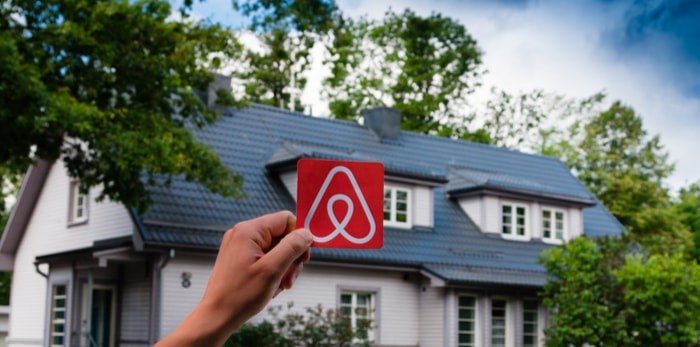The number of short-term rentals in Vancouver is down by almost 50 per cent since the city’s regulations went into full effect Sept. 1.
When the city’s new short-term rental regulations went live in April there were about 6,600 listings in Vancouver. That number has dropped to 3,742 as of this week.
 AlesiaKan / Shutterstock.com
AlesiaKan / Shutterstock.com
“This reduction is a reflection of more than 660 short-term rentals being delisted or converted to long-term rentals by residents responding to the regulations,” Kathryn Holm, the city’s chief licence inspector, said Wednesday afternoon.
However the vast majority, 2,482, were listings that were deactivated by Airbnb on Friday — the last day that short-term rental operators had to comply with the new regulations and include a business licence number in their listing.
In November, council voted to adopt the new bylaw allowing people to post their primary residence on short-term rental platforms, such as Airbnb. The regulations allow both homeowners and renters to list their primary residence — renters must have approval from a landlord while homeowners that are part of a strata must ensure that short-term rentals are allowed under the strata bylaws.
The week before the new regulations went into effect, the city and Airbnb, the largest short-term rental platform in the city, announced an agreement that the platform require hosts to include a business licence number in listings in its website. Since then Expedia, the second-largest platform in Vancouver, also agreed to add a field for hosts to include a business licence to listings on VRBO vacation rental. Together Airbnb and Expedia represent more than 90 per cent of the short-term rental listings in Vancouver.
The regulations went into effect April 19 and since then 2,630 short-term rental business licences have been issued, about 70 per cent of the current active listings.
“This is among the highest initial uptakes of any major city globally upon implementation of short-term rental regulations,” Holm said.
New and existing hosts had until Aug. 31 to obtain a licence and comply with the regulations, while the city went after operators that would clearly not meet the new rules — commercial operators with multiple listings or unsafe dwellings.
Holm said staff has investigated more than 2,650 short-term rental listings to date and since Sept. 1, 294 new addresses have been flagged for non-compliance and are subject to enforcement.
She added that the city built a “sophisticated data analytics system to address the complexity of tracking and managing” short-term rental listings and the city is tracking all platforms using third-party data scraping.
“This week, we are starting enforcement and targeting unlicensed or invalid licenced online listings,” Holm said.
Fines can run up to $1,000 per offence. Holm said that could mean up to $1,000 per day, per platform.
The city is encouraging residents to report the address and URL of suspected illegal short-term rentals through 311, online at vancouver.ca/short-term-rentals, or by submitting a report through the VanConnect app.
Since April, the city has received around 1,300 complaints from residents about illegal short-term rentals.
In a blog post published Sept. 1, Alex Dagg, Airbnb Canada’s director or public policy, said the platform currently has 4,798 active listings in Vancouver. More than 30 per cent are long-term rentals (30 days or more), traditional bed and breakfasts or boutique hotels and exempt from the city’s regulations, she said, and of the almost 2,500 listings that were removed, nearly 70 per cent had not been booked in the 12 months prior to the implementation of the regulations.
“Home sharing has come a long way in Vancouver, from being completely unregulated to now enjoying a framework that legitimizes and provides clarity for the thousands of families who rely on Airbnb every month,” Dagg wrote.



